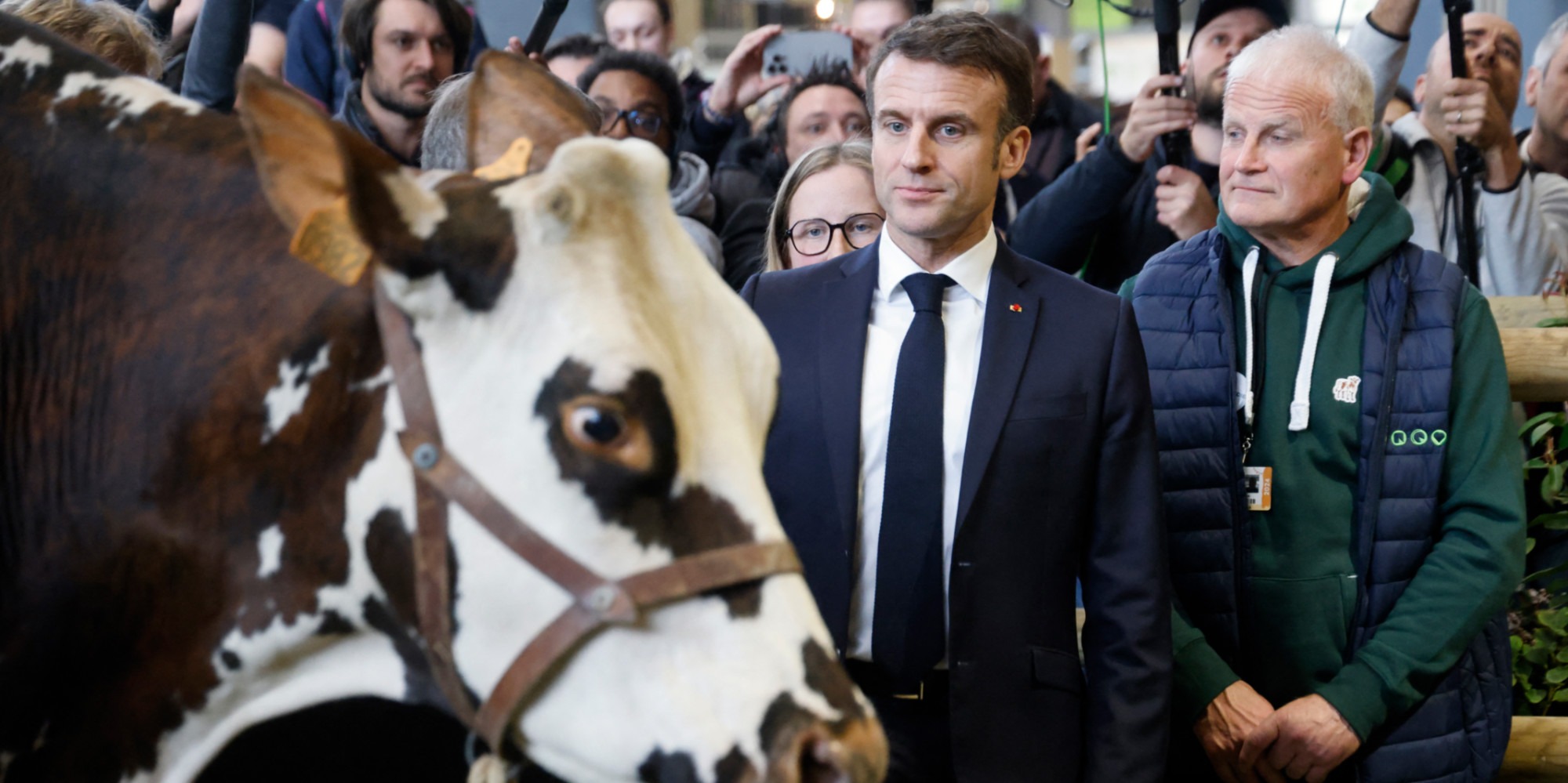Sylvain Allemand // Credits: Ludovic MARIN / POOL / AFP 2:44 p.m., February 27, 2024
To everyone's surprise, Emmanuel Macron announced, during his eventful visit to the Salon de l'Agriculture, that he wanted to set up a floor price in each sector to "protect farmers' income".
A reform in total contradiction with the speeches made by the executive since the start of the peasant protests.
Is this the miracle solution to protect farmers?
During his eventful visit to the Agricultural Show last Saturday, Emmanuel Macron wrong-footed observers by suggesting that the future law defining relations between agri-food players could lead to "floor prices".
A solution which should make it possible, according to the President, to protect agricultural income against the "most predatory" techniques of industrialists.
This measure, demanded for a long time by unions on the left of the political spectrum, such as the Confédération Paysanne, aims to build prices based on all of the production costs of operators according to their sectors.
A methodology, based on the indicators present in the Egalim 2021 law, which should impose on manufacturers a price below which they will not be able to go down during negotiations with farmers.
Calculation criteria defined by inter-professional organizations.
They estimate, for example, that lamb meat should be sold between 9.61 and 11.49 euros, which is not always the case.
>> READ ALSO -
Anger of farmers: why agricultural cooperatives are singled out
The fear of a loss of competitiveness
Unsurprisingly this time, this announcement by the president was well received by the peasant world sharing left-wing political ideas.
“A price that would cover our production costs, would include our peasant remuneration and our social protection, is of course progress,” declared the Confédération Paysanne union on X.
For others, this reform is greeted with more reluctance.
The FNSEA farmers' union fears that the floor price is too low.
In addition, prices are not guaranteed to be respected.
The criteria for calculating production costs are difficult to define and require market regulation.
A floor price that would cover our production costs, include our peasant remuneration & our social protection, is of course progress.
Yet the proponents of liberalism @FNSEA@lacoopagricole@JeunesAgri are crying wolf & protectionism.
A thread of explanations
— Conf' Paysanne (@ConfPaysanne) February 26, 2024
In a context of European competition, French foodstuffs risk being too expensive compared to those of their neighbors.
A situation which, according to critics of the reform, would expose French operators to a situation of unfair competition.
Paradoxically, this vision has long been shared by the executive, and more particularly by the Minister of Agriculture and by Bercy.
A change of direction
"Demagogic proposals like 'we are going to set a floor price obligation', which we can only do on French agricultural prices and which we cannot do on the prices of other countries, what are what does this do? It puts French agricultural products into unfair competition,” Marc Fesneau explained on Franceinfo last January.
Another sign of Emmanuel Macron's strategic turnaround, a proposed law on the floor price, supported by LFI, was rejected by the National Assembly and the presidential majority last November.
To support him, the tenant of the Elysée can count on his Minister of the Economy, who has historically been resistant to this reform.
Visiting Porte de Versailles, Bruno Le Maire advocated competitiveness and better remuneration for farmers.
"Every French farm must be able to be competitive. And so there is a floor price below which you cannot sell because it is not sufficiently remunerative, so there is absolutely no incompatibility between the price floor and the competitiveness of French farms. The two go together,” he declared.

